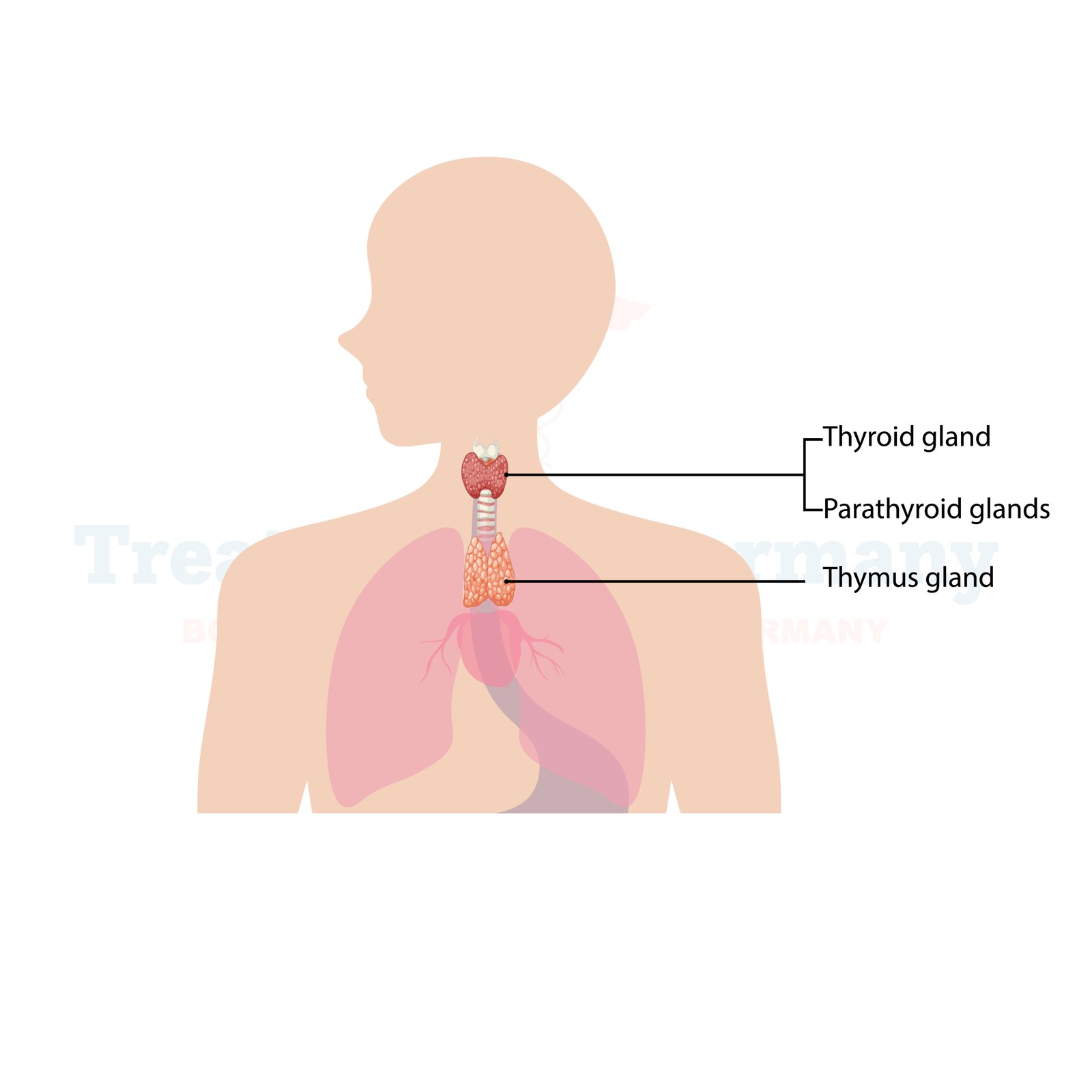Germany is Leading in Laryngeal Cancer Treatment, Merging Innovative Medical Technology with Patient-oriented Care Laryngeal cancer is a type of head and neck cancer that hinders the functioning of the voice box.
Germany has the latest treatment facilities, with features like less invasive surgical procedures, radiotherapy, and new methods such as immunotherapy or targeted therapy that help a patient through every stage of this disease. The country is a global leader when it comes to world-class medical infrastructure and expert oncologists, thus making it the go-to destination for effective yet compassionate laryngeal cancer treatment.
Laryngeal cancer, or larynx cancer is a form of head and neck cancer that affects the larynx (voice box). The larynx, which lies in the throat, plays an important role in speaking, breathing, and swallowing. The abnormal cells that form in the tissues of the larynx cause cancer, and it usually tend to invade surrounding structures.
Cancer can occur in one of the three different parts of the larynx:
Laryngeal Cancer: The Basis of Laryngeal Carcinoma
Laryngeal cancer represents an important subset of head and neck cancers in the world. With progress in the field of healthcare, this condition can now be diagnosed and treated at an early stage while living in Germany.
This is because the lifestyle cycles we live in, like smoking, alcohol use, carcinogen exposure, and other factors, enhance this disease. Laryngeal cancer is found more in men than in women and most common at 60 years of age or older.
Symptoms and Risk Factors
Common Symptoms
Laryngeal cancer presents with signs that resemble those of less severe illnesses, making early detection difficult. Yet, any symptoms that remain or worsen warrant urgent medical attention. These include:
Risk Factors Laryngeal Cancer
There are some behaviors and environmental exposures that definitely will increase your chances of getting laryngeal cancer.
Laryngeal cancer has the following risk factors:
Those with a history of head and neck cancers are more likely to experience recurrence.
Diagnosis of Laryngeal Cancer in Germany
The diagnosis and staging of laryngeal cancer in Germany includes modern diagnostic tools to conclude the disease as accurately as possible. Diagnostic methods will often include the following:
Imaging tests:
Staging the Cancer
In laryngeal cancer, staging is essential to determine the extent of tumor spread and plan treatment. The stages include:
Treatment Options in Germany
Laryngeal cancer treatment in Germany combines a classic approach with modern technology to ensure that patients receive the best care possible.
Surgical Treatments
Surgery is the cornerstone of laryngeal cancer management, especially for localized or advanced tumors. Precision techniques are used by surgeons in Germany to restrict functional impairment. Types of surgeries include:
Radiation Therapy
For early stage laryngeal cancer, radiation therapy is the main treatment approach, while it is an additional strategy for more advanced stages. Using precision technologies—intensity-modulated radiation therapy (IMRT).
For example that German radiation oncologists use in the treatment of tumors while avoiding adjacent normal tissue. Such tumors are seen in the glottis, where preservation of the voice is crucial, so this therapy works excellently.
Chemotherapy
Chemotherapy refers to the use of systemic medicaments that either kill or slow the growth of malignant tumor cells. High compliance with chemotherapy use would have preferential economic advantages as it is frequently used in combination with radiation, particularly for more advanced disease in Germany. It works but has side effects such as nausea, loss of hair, and mucositis.
Immunotherapy
A novel technique for using your body's immune system to combat cancer called immunotherapy. In particular, drugs that act as so-called checkpoint inhibitors aid the immune cells in identifying and eliminating cancer cells, which should provide options in cases where typical therapies are ineffective.
Targeted Therapy
This therapy focuses on particular proteins or genetic components in tumor cells to stop them from growing and spreading. Germany offers personalized cancer care combined with targeted therapy that does less harm to normal tissues.
Why Germany for Laryngeal Cancer Treatment?
Germany is Evolving As A Leader in Laryngeal Cancer Care:
Rehabilitation and Aftercare in Germany
Life After Surgery
Rehabilitation care and lifestyle changes are frequently necessary for laryngeal cancer recovery in Germany.
Lifestyle Modifications
Long-Term Outlook
Survival and Prognosis
With early detection, however, outcomes are substantially better and many cases are cured. For localized laryngeal cancer, however, the five-year survival rate is high between 70% and 95%. This means that lymph nodes or distant organs are involved in more advanced cancers, which have a low survival rate. So getting diagnosed and treated early is critical.
Follow-Up Care
Frequent follow-ups with oncologists make certain that any recurrence is detected early. Imaging tests, physical exams, and checks for possible complications—such as swallowing or speech problems—are common during these visits.
Frequently Asked Questions
Can laryngeal cancer be caused by HPV?
Indeed, HPV, a sexually transmitted infection, is a recognized risk factor that results in aberrant laryngeal cell development.
Why Do You Need a Biopsy for Diagnosis?
A biopsy diagnosis reveals cancer and markers to direct personalized therapies
Is laryngeal cancer treatable in advanced stages?
However, treatment for advanced laryngeal cancer is possible, although it is more difficult to treat when at this stage. Radiation, chemotherapy, immunotherapy, and surgery are available forms of treatment.
What does stopping smoking do for help?
Treatments are much more successful, complications less, and recurrences even less if you quit smoking.
What makes Germany one of the go-to destinations for cancer treatment?
Germany has merged innovation, expert care, and advanced technology for comprehensive treatment and rehabilitation of laryngeal cancer.
👉 Contact us for further information and receive a complimentary consultation.


.webp)
 (1).webp)

.webp)
 (1).webp)


.webp)
 (1).webp)

.webp)
 (1).webp)
